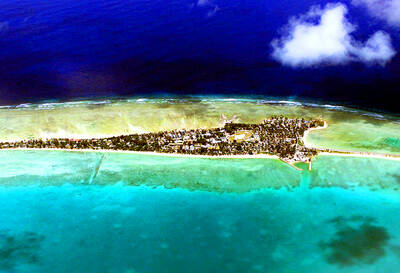The US military in Iraq has freed two Iranian prisoners from its custody, an Iranian diplomat at Tehran’s embassy in Baghdad said on Friday.
“Two Iranians have been freed by the Americans after co-operation with the office of the [Iraqi] Prime Minister [Nuri al-Maliki] and the Iranian embassy,” an Iranian diplomat said, speaking on condition of anonymity.
The diplomat declined to give any further details about the two Iranians who were freed. It was not immediately clear when they were released.
The US military did not respond to requests to confirm the prisoners’ release.
However, Iran’s envoy to Baghdad, Hassan Kazemi Qomi, told Iranian state-run television that the two men were Ahmad Barazandeh and Ali Abdulmaliki, who were detained seven and three years ago respectively because they did not have passports.
“Barazandeh and Abdulmaliki came to Iraq for a pilgrimage but when they were arrested in Najaf and Samarra, they did not have their passports,” he said, referring to Iraqi cities where two holy Shiite Muslim shrines are situated.
He said that they had been handed over to the Iranian embassy and would return to Iran at “the earliest time” possible.
The US has detained several Iranian citizens in Iraq since the 2003 US-led invasion to oust Iraqi president Saddam Hussein. It accuses Tehran of training and arming Shiite militant groups.
Iran detained three Americans on July 31 last year after they strayed across the Islamic republic’s border while on a hiking trip in northern Iraq’s Kurdistan region.
The release of the two Iranian prisoners in Iraq came as the mothers of the three US hikers called for the trio to be freed as a “humanitarian gesture.”
Iran has given no official indication it is preparing to release the three, although the visit itself was seen as a breakthrough.
Washington insists the three hikers are innocent and should be released, emphasizing that they had mistakenly wandered across an unmarked border in a remote mountainous area.
On Wednesday, Iranian Intelligence Minister Heydar Moslehi renewed accusations of espionage against the trio.

DISASTER: The Bangladesh Meteorological Department recorded a magnitude 5.7 and tremors reached as far as Kolkata, India, more than 300km away from the epicenter A powerful earthquake struck Bangladesh yesterday outside the crowded capital, Dhaka, killing at least five people and injuring about a hundred, the government said. The magnitude 5.5 quake struck at 10:38am near Narsingdi, Bangladesh, about 33km from Dhaka, the US Geological Survey (USGS) said. The earthquake sparked fear and chaos with many in the Muslim-majority nation of 170 million people at home on their day off. AFP reporters in Dhaka said they saw people weeping in the streets while others appeared shocked. Bangladesh Interim Leader Muhammad Yunus expressed his “deep shock and sorrow over the news of casualties in various districts.” At least five people,

ON THE LAM: The Brazilian Supreme Court said that the former president tried to burn his ankle monitor off as part of an attempt to orchestrate his escape from Brazil Former Brazilian president Jair Bolsonaro — under house arrest while he appeals a conviction for a foiled coup attempt — was taken into custody on Saturday after the Brazilian Supreme Court deemed him a high flight risk. The court said the far-right firebrand — who was sentenced to 27 years in prison over a scheme to stop Brazilian President Luiz Inacio Lula da Silva from taking office after the 2022 elections — had attempted to disable his ankle monitor to flee. Supreme Court judge Alexandre de Moraes said Bolsonaro’s detention was a preventive measure as final appeals play out. In a video made

It is one of the world’s most famous unsolved codes whose answer could sell for a fortune — but two US friends say they have already found the secret hidden by Kryptos. The S-shaped copper sculpture has baffled cryptography enthusiasts since its 1990 installation on the grounds of the CIA headquarters in Virginia, with three of its four messages deciphered so far. Yet K4, the final passage, has kept codebreakers scratching their heads. Sculptor Jim Sanborn, 80, has been so overwhelmed by guesses that he started charging US$50 for each response. Sanborn in August announced he would auction the 97-character solution to K4

SHOW OF FORCE: The US has held nine multilateral drills near Guam in the past four months, which Australia said was important to deter coercion in the region Five Chinese research vessels, including ships used for space and missile tracking and underwater mapping, were active in the northwest Pacific last month, as the US stepped up military exercises, data compiled by a Guam-based group shows. Rapid militarization in the northern Pacific gets insufficient attention, the Pacific Center for Island Security said, adding that it makes island populations a potential target in any great-power conflict. “If you look at the number of US and bilateral and multilateral exercises, there is a lot of activity,” Leland Bettis, the director of the group that seeks to flag regional security risks, said in an